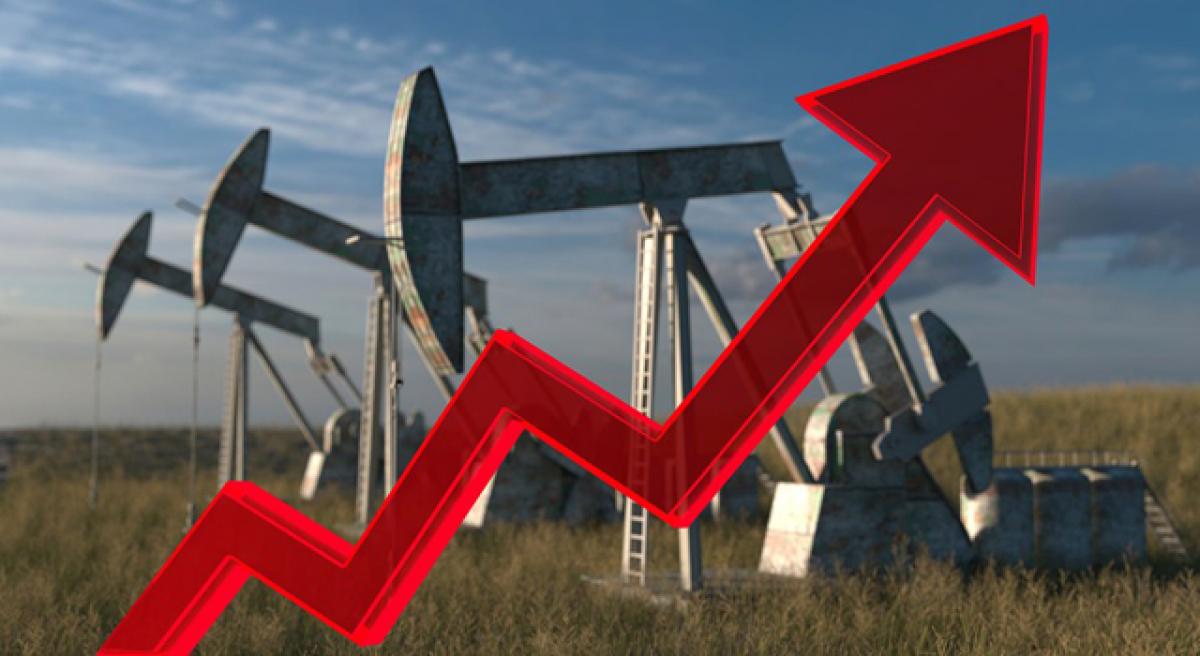Welcome the high price of oil

The price of crude oil has increased from US $ 48 per barrel in April 2017 to US $ 68 presently. The US economy is on the upswing. That is pulling the world economy as well. The global demand for oil is likely to increase further in the near future.
The price of crude oil has increased from US $ 48 per barrel in April 2017 to US $ 68 presently. The US economy is on the upswing. That is pulling the world economy as well. The global demand for oil is likely to increase further in the near future.
The negative of this is that our import bill will increase. The Government has reduced the excise duty on oil to protect the consumers from this increase. That will lead to less revenues for the Government as well. However, there are many positives of the increase in price that we must not lose sight of.
The regime of high price of oil started in the early seventies. The Arab countries had raised the price from one dollar per barrel to 11 dollars. Again, in the early eighties they raised it to 21 dollars. We must examine how this increase impacted the rich and poor countries differently—America and India, for example. According the World Bank data, India’s growth rate in the sixties was 3.4 percent per year, while America’s was 4.3 percent.
India’s growth rate continued to increase despite the increase in price of oil in the seventies and eighties and reached 6.1 percent in the nineties. On the contrary, there has been a decline in America’s growth rate. It has got stuck around three percent since the seventies. The high price of oil has had a positive impact on India and negative impact on America.
The impact of oil price will be more on countries that consume more oil, just as the impact of increase in the price of electricity is more on households that use air-conditioners. According to the United Nations Development Program, an average Indian consumes 561 KwH energy equivalent in a year, Chinese 1139 KwH and American 13,241 KwH. Therefore, an increase in the price of oil would lead to greater loss to the American citizen.
Truly, the net impact of the price of oil on the world economy is zero. The gain of one country is the loss of another. There is no net impact on the world economy just as the giving of one lakh rupees by one brother to another does not change the total income of the family. High price of oil only strengthens the situation of the oil exporter vis-à-vis that of oil importers. Within importers, it strengthens those having less consumption like India against those having high consumption like America.
The impact of oil price will depend on two factors. Those consuming less and importing less will be better off. India consumes less; therefore, our position will become stronger than other countries which consume more, but we import more therefore we will lose. The net impact on India will be mixed. Oil-exporting countries like Saudi Arabia will gain because they will get more money for their exports.
The United States and Europe will lose doubly. Their competitiveness will erode in comparison to other countries that consume less, and it will also lose because it imports more oil. The net impact of increase in oil price will be mixed for India, beneficial for Saudi Arabia, and negative for the United States.
The high price of oil is beneficial for another reason. India received about $ 65 billion dollars as remittance from NRIs in 2017. A big part of this was received from NRIs working in the Arab countries. This inflow of remittance started after the increase in price of oil in the seventies. Arab countries obtained huge incomes from the exports of oil. They started the construction of shopping malls, airports and highways in a big way.
They needed labour for this activity which was supplied by India. These NRIs are now sending remittances. The final formula is like this: High price of oil leads to high income for oil-exporting countries. They expand construction activity and need labour for the same. India supplies these labour and gets larger remittances. In this way high price of oil leads to higher income for India.
Another benefit is that we receive more foreign investment (FII) in our share markets. The Arab countries had invested much of their oil incomes in America in the seventies and eighties. The dollar was rising then. Arab Sheikhs bought property in Manhattan and shares in New York Stock Exchange. There is every chance that the flow of world capital may move towards India.
The present boom in our share markets is in part due to these inflows. High oil price will give a push to the development of solar power in India. That has the potential to release us from the clutches of oil imports. Solar power is more eco-friendly as well. A caveat here is that the same increase in the price of energy will make hydroelectric projects viable and give a fillip to the killing our rivers.
The present increase in the price of oil will turn out to be a blessing in disguise if we push the development of solar power and restrain ourselves from developing hydroelectric projects. On the whole, we lose from high price of oil because we have to pay more for the imports. However, this increase can become beneficial for us if we follow the right policies.
One, our ability to compete with the developed countries is enhanced because high prices are more damaging for their oil-intensive economies than the oil-extensive economy of ours. Two, we stand to receive higher remittance from NRIs. Three, our companies may get more FII. Four, we will come out of the clutches of oil imports if we use this opportunity to develop solar power aggressively.
My personal assessment is that we stand to gain more and loose less. The proof lies in the increase in our growth rate after the oil price rise of the seventies and eighties.
It is unfortunate that mainstream economists are only harping on the negative impact of the increase in the price of oil on our economy and ignore the many benefits we stand to make from it. Author was formerly Professor of Economics at IIM Bengaluru
By Dr Bharat Jhunjhunwala














